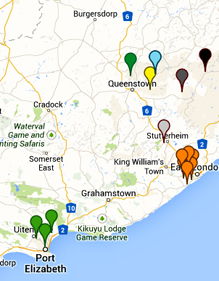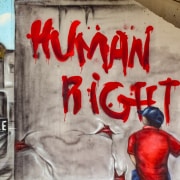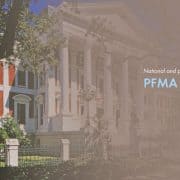|
Getting your Trinity Audio player ready...
|
August saw a record number of schools tip-offs sent in to Corruption Watch, with the majority of complaints coming from small towns in the Eastern Cape, followed by KwaZulu-Natal and Gauteng.
Sixty-nine reports came in from the public during the previous month, bringing the overall number of schools reports sent in by the public since our launch in 2012 to 270.
Interestingly, the greatest number of complaints in August came from the Eastern Cape (36.2%), with the next highest category being “unknown” (18.84%) – this is where the complainants don’t leave a location in the report they submit to us. The province with the second highest number of tip-offs in August was KwaZulu-Natal (14.49%), followed by Gauteng (13.04%).
An example of a recent tip-off from the Eastern Cape:
“Money is used for the principal's needs. Signatories sign … cheques for the principal to build her house and for their needs. There are no desks, chairs , learners use bricks as chairs. The school is in misery. There are many ghost learners. Learners are not given food everyday because the principal buy one 12,5 kg mieliemeel and one top class soup for 600 learners. A grade R teacher bought a matric certificate, her name is ***. she is uneducated but is earning every month.”
This surge in complaints from the Eastern Cape is significant, considering Corruption Watch is based in Gauteng and until recently the bulk of our communications efforts came from there too. In August, however, the organisation notched up its presence on community radio stations across the country and it’s assumed the surge in tip-offs from other provinces, including the Eastern Cape, was due to that.
In August, 44 or 63% of the reports received involved the abuse of state resources by public official. The next prominent corruption type flagged in August was employment corruption – such as nepotistic appointments, followed corruption involving procurement processes.
An example of a schools complaint about the abuse of resources by a public official:
“At the school called *** Junior Secondary School, the school cheque book got missing and when they find it they find out that R75000 cheques are missing. The principal of the school MR *** and the clerk Ms. *** are the culprits.”
The most-mentioned municipalities in August were Buffalo City in the Eastern Cape, City of Johannesburg in Gauteng and Nyandeni Local Municipality, which falls under the Eastern Cape’s OR Tambo District Municipality.
An example of a tip-off from Nyandeni Local Municipality:
“The son of our school principal is building the school , no one told us about the project of building the school. we are watching things happening and it shows that something went wrong. The name of the school is called ***.”
In looking at the geographical context of August’s schools tip-offs, we see that 42% come from small towns and only 31.8% from metro municipalities. Some 4.35% originated from provincial capitals, while for 21.47% of complaints, the location couldn’t be established.
Every month we’ll crunch the numbers and bring you up-to-date analysis of what South Africans are reporting to us about corruption in schools. To report your experiences of such misconduct, click here. To give us more detailed feedback of how corruption is taking place at your or your child’s school, take our survey.
Distribution of Eastern Cape tip-offs received in August 2013
|
Municipality |
Number of tip-offs received |
Colour of pin on Google Map |
|
Mhlontlo |
1 |
Red |
|
Emalahleni |
2 |
Light blue |
|
Nyandeni |
4 |
Dark blue |
|
Nkonkobe |
1 |
Dark green |
|
Port St Johns |
1 |
Pink |
|
Intsika Yethu |
1 |
Grey |
|
Buffalo City |
7 |
Orange |
|
Amathole District |
1 |
Light grey |
|
Nelson Mandela Bay |
3 |
Light green |
|
O R Tambo District |
1 |
Brown |
|
Ntabankulu |
1 |
Yellow |
|
Engcobo |
1 |
Black |
*Extra details that could identify the reporter or the accused have been taken out.










